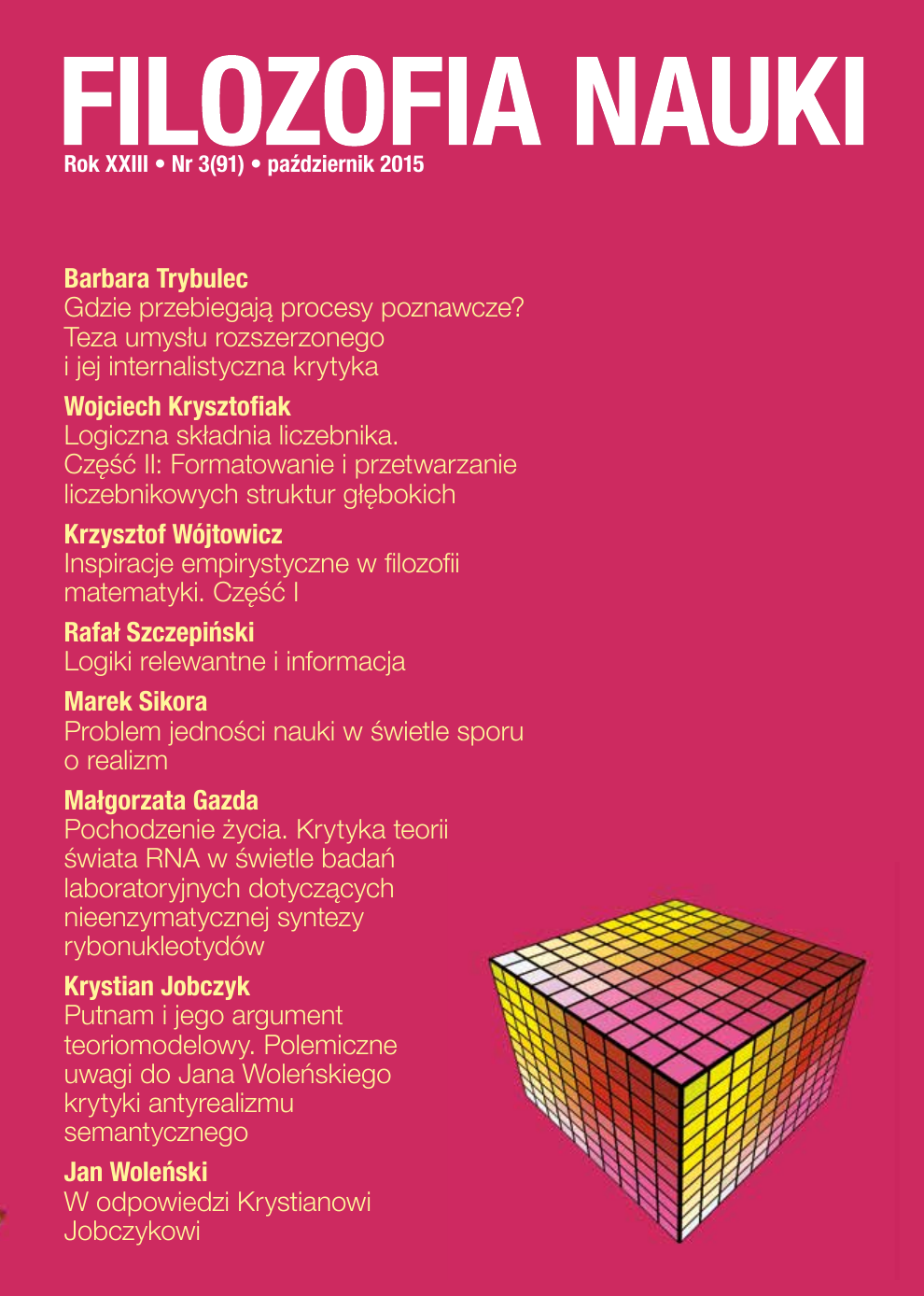Where Do Cognitive Processes Take Place? The Extended Mind Thesis and its Internalist Critique
Keywords:
extended mind, coupling–constitution fallacy, cognitive process, beliefAbstract
The idea that cognitive processes extend the boundaries of the cognizer’s body is fairly popular in contemporary philosophy of mind. However, some philosophers constantly accuse its followers of conceptual overuse and logical fallacies. In this paper I analyse the coupling–constitution fallacy, which is sometimes ascribed to the advocates of the extended mind thesis. My aim is to demonstrate that externalists are not able to defend their positions against this critique. Still, escaping the cou-pling–constitution fallacy leads to strongly unreasonable consequences that even internalist critics are not willing to accept. Under certain sound conditions, the expla-nation of cognitive processes cannot avoid this fallacy.Downloads
Published
2015-09-01
How to Cite
Trybulec, B. (2015). Where Do Cognitive Processes Take Place? The Extended Mind Thesis and its Internalist Critique. The Philosophy of Science, 23(3), 5–19. Retrieved from https://www.fn.uw.edu.pl/index.php/fn/article/view/792
Issue
Section
Articles















 Filozofia Nauki/The Philosophy of Science | ISSN 1230-6894 | e-ISSN 2657-5868
Filozofia Nauki/The Philosophy of Science | ISSN 1230-6894 | e-ISSN 2657-5868